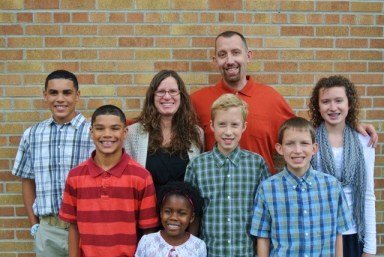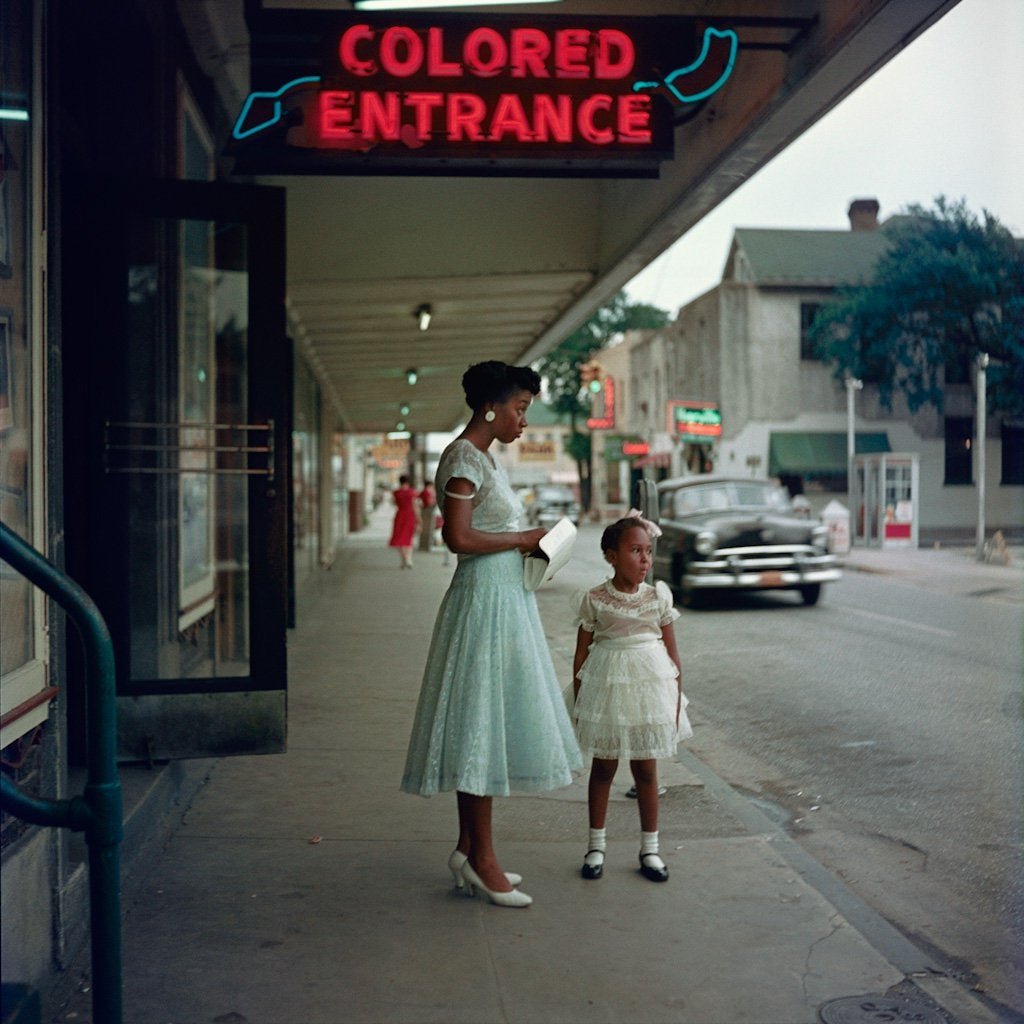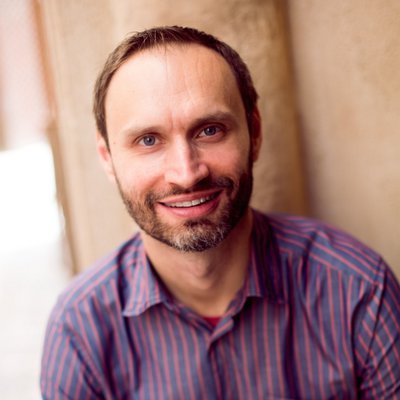Pastors Pursuing Diversity: An Interview with John Erickson
Over the next few months, I will be conducting interviews with pastors who are pursuing diversity in their congregations. You can read more about the series in the introduction.
The questions are geared to help pastors and congregations in the pursuit of diversity in the church and all of life. All of the views, opinions, and suggestions are that of the interviewee. The goal of the series is to provide a resource from a variety of pastors, and therefore opinions may also vary.
(Due to length, please feel free to print interviews for future reading and referencing)
John Erickson is the Lead Pastor of Jubilee Community Church in Minneapolis, MN. He and his wife, along with one other couple, began Jubilee in 2009.
Have you always had a desire for a diverse or multiethnic church?
It’s definitely grown over the years; my parents were impacted by John Perkins in the early 80’s. They moved into the hardest neighborhood in Minneapolis, which is also the most diverse neighborhood. So, I grew up among many cultures. Growing up our church was all Anglo and my heart beat to see my diverse friends know Jesus. I wanted them to grow in the Word and to be trained as men who would follow God. The question that haunted me for a long time was where are they going to be helped to know and follow Jesus. So that burden and passion has grown for over the course of decades of living in the neighborhood I grew up in, wanting to see the peoples of our community know Jesus and love Jesus.
If so, what has fueled this desire?
In 2006, two other men, myself and our families launched out from being on staff at Bethlehem Baptist Church to plant a multiethnic church. We knew that diverse leadership was essential. We knew that having a lead pastor who was not white would be huge and we had a very gifted African American pastor on staff at Bethlehem who was going out to lead the church and I was going to serve alongside of him. Unfortunately, the week before our grand opening in the fall of 2006, we discovered that he had disqualified himself morally from ministry and that began a long period that was hard. I was immediately thrust into the role of interim pastor. The Lord was very gracious and the church stabilized and prospered.
We had a very diverse church with diverse leaders. It was a wonderful church. It was a beautiful picture of a diverse, united, Christ-exalting community.
In our commitment to diverse leadership we pursued hiring a new lead pastor who was also non-Anglo. After finding our new lead pastor, he needed room to grow so I saw that I needed to move on and give him space to lead because I had been a lead role with the church for a year and a half.
That was a good and painful change because we had a diverse and wonderful church.
In assessing the future we were led back to my childhood community in 2009, to plant Jubilee community church.
We weren’t coming from a strong, well prepared situation. In fact we began with just one other couple and my wife and I. We knew we needed diverse leadership. My biggest wrestle in planting the church was my own ethnicity. I had seen to many all anglo efforts in our area and I really didn’t want that again. This time the Lord didn’t open up the door for us to have diverse leaders from the beginning. So my biggest question before planting this church was, “God, am I the right man to plant this church?” In prayer God was encouraging me in that to say yes, “My strength is made perfect in weakness.”
How have you sought to build diversity within your congregation?
We’ve sought to be very intentional in pursuing relationships with people from other cultures, we have sought to do ministry in our community that’s very intentional in reaching out and loving people. The Lord has given us a number of strong ministries that are connected with our church that are doing good things but it always takes time. It’s always much slower than we want but we keep working at it and trust that God will help us in it. Some of the ministries are:
The Jubilee Urban Leadership Initiative – An intentional discipleship effort by our pastors and elders to invest in diverse leaders in our city.
Ben Carson Academy – A homeschool housed in our church for a couple of young men from our community that we have been in relationship with.
SAY YES – A youth outreach ministry that seeks to love young people through Bible studies, meals, games and mentorship.
Hope Academy- An amazing Christian school for urban families that was started by one of our elders 13 years ago.
Jericho Road – A ministry that is open every weekday to meet the needs of people in crisis with food and help done in the love of Christ.
Coaching Youth baseball – The Minnesota Twins built a beautiful baseball field in our neighborhood, but it never had a team play on it. Why? Because who coaches youth baseball? Dads. No dads = no youth baseball. So I started a team for my sons and recruited some other believers to help and from that many other teams have sprung seeking to be intentional in evangelism and discipleship and playing good baseball.
How have you sought to cast this vision to your members?
I preached on it yesterday from Gal. 2 just highlighting that we need to walk in step with the truth of the Gospel, namely that the Gospel frees us from any kind of racial or ethnic pride, superiority, separation, that God has made one new man out of those who were separated by the dividing wall of hostility; He’s broken that down! John Perkins said way back that we’re called to live out that reconciliation that Jesus has already accomplished. I think that’s exactly right so we try to call our people to that again and again, to humbly cross-cultures and learn from other people, and befriend in humility and with grace and purposefulness. It’s always happening more slowly than we would like.
We have also sought to cast this vision to our members by offering different books for the congregation to read like Aliens in the Promised Land, One New Man, A Cross-Shaped Gospel and United by Faith. We have sought to make sure there’s a book stand where they can check out books to read and we also encourage people to attend conferences that are diverse with diverse speakers.
Do you have a diverse staff as well?
I’m really thankful that Jahill Richards is on staff with us. Jahill is doing this interview with me. He’s the director of theJubilee Urban Leadership Initiative, which is an urban leadership development program/internship, which seeks to provide sound theological training, character development and assessment of calling and gifting for urban, multi-ethnic leaders in the context of the local church.
Unfortunately, our church is not as diverse as we would like but we are seeking to raise leaders up and grow them. We do have some diverse deacons and interns and worship team members. We hope there are some future staff members in our church and some future Elders and future Deacons in our church. We believe there are and just want to continue to invest in them. I have known for long time that that’s extremely important and yet it’s not something you can do with the snap of the fingers but it is something we are seeking to be very intentional about.
What do you see as the benefit of a diverse church?
In our city, in our neighborhood, it would reflect the community and it would reflect the power of God’s power to reconcile people. In every large city there’s a lot of hostility between cultures and between races and to have a church that crosses that is huge. Not only that, it’s beautiful, it’s enriching, it’s good for families. It’s just a beautiful thing. Every cross-cultural relationship I have, I love and I’m so thankful for. Our experience at All Nations Christian Fellowship was rich and a treasure and the experiences we’ve had here have been good too!
There are many benefits, namely it reflects heaven and what heaven will be like. Heaven will be the ultimate diverse “ecclesia” gathering! I’m so longing to grow into the likeness of reflecting heaven as much as we can.
Have you had any fears? Have you struggled with doubt that it is possible?
I think a big struggle has been the slowness of trying to cross cultures. My own personal limitations are extremely frustrating to me. I go back eight years to having a burning desire to see and be a part of a cross-cultural diverse body and planting intentionally under an African American Pastor and seeing the need to not have an all-white led staff and then have that blown apart. To be in a church that was so diverse, then moving on and trying to recreate that and finding that so slow in coming is hard. To me the greatest frustration or weariness, is how slow crossing cultures has been in comparison with the desire I have for it, which is very significant.
Do you do anything unique with your service(s)?
We do a few things that seek to be intentional. One is we have a time after our welcome to greet one another intentionally. We’ve had a number of guests recount that they really appreciate how warm and welcoming our church is, that is an intentional effort to love people and welcome them in. We have sought musically to grow in diversity by intentionally using music from different backgrounds. At times that’s limited by the skills that we have, but we are striving our best to move in that direction. We seek to welcome people, love people, and bring different pieces of the service from different backgrounds together. One more thing is, we want to be very intentional in who preaches at Jubilee so we have sought to be intentional in welcoming guest preachers from different backgrounds and our church loves that! They have been men who have served us so well with the Word of God.
What are the demographics of your congregation (if you happen to know)?
Jubilee is right now majority white. By the grace of God, it’s not only white. We have also brothers and sisters in our body who are Asian, Latino, African, African American, other cultures and so by the grace of God, there’s some diversity and there’s a deep longing in every elder and the people of the church for us to grow more in this way.
If you could give any advice to a pastor who desires to pursue diversity within his congregation, what would you say to him?
He needs to be a learner. He needs to learn about other cultures. He needs to be humble and ask lots of questions, and needs to be intentional in building relationships cross-culturally. He needs to do more listening than talking and he needs to read as much as he can, learn from people of different backgrounds, and then he needs to pray and call his people to pray and persevere over a long period of time through the painful events that will inevitably happen in this pursuit. Every single person that pursues this and every single church that pursues this runs into painful experiences that must be persevered through by faith.
If you were asked to speak to a congregation who was about to begin a series of initiatives in hopes of building a more diverse congregation what might you say to them?
For predominately anglo-churches I would refer them to the book “When Helping Hurts” making sure in their self-assessment they have really considered whether a patronizing, paternalistic, and proud attitude is present in them. It is very common, frequently not noticed and it can be so destructive and harm efforts from the very get go. Our labor needs to be rooted out of humility and love. To me that is the biggest thing about this process. When a majority culture seeks to cross-cultures they need to do a self-assessment and understand that what they think are the needs or the challenges often aren’t. They need to make sure that they do as much as they can to not add to the problem, exasperate the problem but to be part of God’s solution.
Did you actually do anything differently to pursue diversity? Do you think it is necessary?
We started an Urban Leadership Initiative. We long to raise up leaders in our church for our city from diverse backgrounds. We give a lot of time to that and feel like it’s time well invested. I think for us, it’s absolutely necessary in our context; it’s absolutely necessary. A non-diverse church long term in our community will not prosper. So as much effort as we can give here, by the grace of God, we want to do that.
How do you think that the Great Commission can motivate a pursuit of diversity?
In the center of the Great Commission is the call to make disciples. Before moving to the phrase, all nations, we have to remind one another constantly that the call Jesus gave us is to ‘make disciples’. That means its not just ‘have a relationship’ or ‘have a conversation’. But to truly make disciples which takes a long period of time. So to cross-cultures in making disciples is a really big deal and to have that at the center is really big but then to see that it is a call to make disciples of all nations and to look around in our cities, our location or our community and see that in many many cities and neighborhoods that God has brought the nations near. If we open our eyes we will see a call to fulfill the Great Commission by crossing cultures right where we live in our disciple making.
I, personally, believe diversity begins in the home. In other words, we are adopted into a new family and that family, the church, is beautifully diverse. We should seek not to have a face change in our churches but to have it in all of life—our lives should include those unlike ourselves. Do you agree? If so, how might you encourage members to build diversity in their homes?
I’ll start by saying that I’m a big fan of adoption. By the grace of God, we have been able to adopt three times and we are very thankful for that. We didn’t adopt to pursue diversity. We adopted because we wanted children, loved children and loved diversity too. So by the grace of God, we do have a diverse home. But beyond that we also want to be intentional in who we invite into our home and so we seek to invite people and welcome people from different backgrounds and cultures into our home. And feel like that’s a blessing to our family; it’s a blessing to anybody who does that and we seek to model that for our church by doing that in our home. But it definitely starts in the home; it starts with personal relationships before it starts at the church level.
Anything I missed? Please do share!
I’m so helped in Galatians 2, that Paul doesn’t say to Peter, “You’re a racist” but he says, “You’re not walking in step with the truth of Gospel.” He’s so passionate about the Gospel. Paul doesn’t want anything to get corrupted or distorted about the Gospel. He’s alarmed that anybody would be leaving the Gospel behind and he confronts Peter because of a Gospel issue, which is related to this issue of diversity. So, it is easy to make something other than Christ something other than a Gospel-central. That’s a great concern related to diversity, that it doesn’t become the main thing or the main pursuit. We must stay focused on Jesus Christ and His work of saving us at the cross through faith and that produces Gospel-centered diversity that produces a living out of the reconciliation that He accomplished but we have to maintain that order and we have to keep fighting for that order, otherwise we will slip into something else that the world might like or that the world might do that’s not rooted in Christ and His cross.
What is the greatest joy you have found in ministry?
I think the greatest joy is when a man who has been a Black Panther since 1968 comes to you and says, “Thank you for helping me find God.” Just helping people to know more accurately the character of God and in that knowing of the character of God, having their whole life transformed. It’s amazing that we get to know God and that we get to share the knowledge of God with other people. It’s a huge joy, and when they’re walking in that knowledge it’s glorious, it’s transforming and it’s beautiful. That’s definitely the greatest joy for me.
On the same lines, just seeing transformed lives. Whether it’s from unbelief to belief, or whether it’s from immaturity to maturity, or walking people from singleness to marriage, or no kids to kids, just seeing them grow in biblical wisdom and understanding of walking with Christ and in figuring out how to do life together. I love walking with people and seeing them grow in their love for Jesus or when the Word is preached and people come to you, and you can tell they’ve been affected by it; they’ve been changed in some way by understanding some new part about God or some new thing that struck them at a deeper level about who God is, that’s a joy for sure!
RELATED CONTENT











Guest post by Isaac Adams
I thank God for folks who speak biblically about race. Whether it’s a black mom teaching her children that they also bear God’s image, or a white sister writing a prophetic blog post—there are many brothers and sisters take up this worthwhile battle…